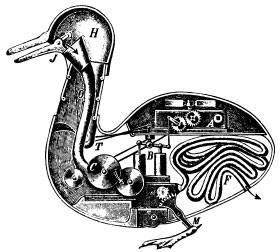Odd ducks
A doctor told us a story of a patient he’d almost failed.
I suppose there are three basic stories in medicine, from the doctor’s perspective, at least:
- We did all the right things and the patient did well;
- We made some mistakes which put the patient at risk and the patient did not do well;
- We made some mistakes but we corrected ourselves and the patient did well in the end.
Of course, 1 is too boring, 2 is too hard to admit, and so 3 is the only one with the drama and redemption to warrant narration. This was a good example, though: the doctors (working in the Emergency Room) were distracted by this patient’s profile and by the way he told his story, so that they almost missed the critical piece of the picture. But a detail in the patient’s story niggled away and eventually led to them calling for the right procedure which turned out well for everyone in the end.
The doctor telling the story, Rishi Goyal, is an ER physician but also happens to teach literature at Columbia University in New York, whose Narrative Medicine Program was one of the two organisations behind the conference I’ve been at this week. Goyal’s analysis of his own story suggested that more important than identifying with his patient (which he failed to do perhaps because of their disparate profiles) was finding a point of interest in his story, upon which the doctor could hang the care and attention required to do a good job. It made me think about what details I need to include in my stories to provide readers with a point of interest to care and attend to each character.
This was all part of what might be my favourite session in the conference: Kazuo Ishiguro, blues music and Shakespearean tragedy were lined up to help investigate emotions in literature and medicine. It was most enjoyable.
The last breakout session for me was also good although a bit more staid, not having any blues music played or lines from King Lear performed. But the speakers addressed currently relevant topics such as ‘mystery’ illnesses (I am trying to write a feature about Alzheimer’s disease as if it were the crime at the heart of a good detective story) and metaphors in descriptions of illness (eg Susan Sontag was against the use of metaphors in illness narratives because they too often collapsed a moral burden onto the patient’s shoulders).
Summation
Having reached the end of the conference, it would be nice to attempt a definition of narrative medicine, but I’m not sure that I can, really. Read the rest of this entry »
